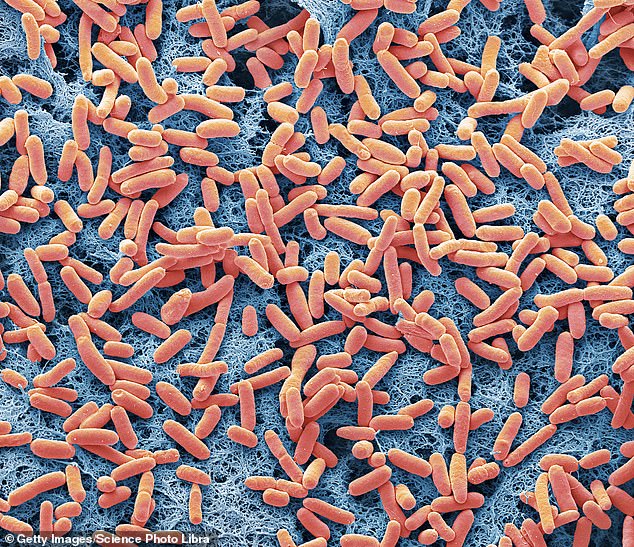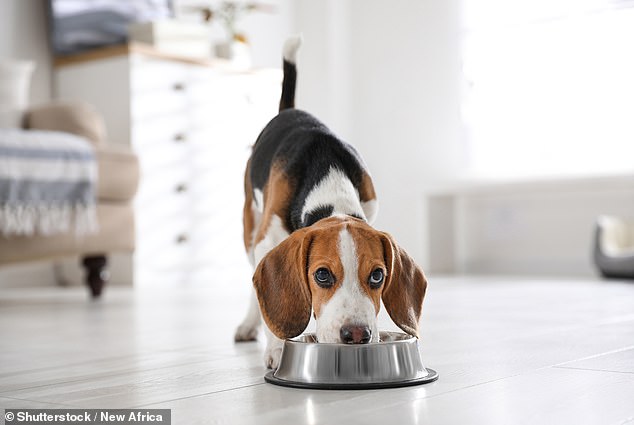Pet owners have been warned not to feed their dogs raw meat after a study found that dogs who normally ate such foods showed greater signs of developing E. coli.
Research by the University of Bristol found that giving dogs raw meat led to an increased presence of an antibiotic-resistant strain of bacteria in their feces.
The study, which was conducted on 600 healthy dogs, concluded that owners should consider switching to a non-raw food diet for their beloved dogs.
Alternatively, he suggested that owners should cook meat before feeding it to their dogs, or source the best quality meat possible if they wanted to feed it raw to their dogs.
They also noted that good hand hygiene greatly reduces the immediate risk of ingesting E. coli. The report’s authors called on the raw dog food industry to source meat from farms with stricter antibiotic policies.
E. coli, which can cause food poisoning, is the most common cause of urinary tract and bloodstream infections in the UK, which can be life-threatening.
A cute beagle puppy eating from a bowl (stock image)
A particularly concerning finding of the study was that the E. coli strain detected appeared resistant to ciprofloxacin, an antibiotic used to treat a variety of bacterial infections in humans and animals.
The World Health Organization (WHO) classifies these antibiotics as critically important and high priority.
The findings say: “This study confirms that raw meat carries multiple resistant E. coli, commonly including resistance to antibiotics of critical importance to human health.”
Matthew Avison, Professor of Molecular Bacteriology at CMM, who led the study, explained: “Raw meat, whether intended for human consumption after cooking or sold as raw dog food, is likely to be contaminated with E. coli resistant to the antibiotics.
“Cooking kills bacteria and good hand hygiene reduces the immediate risk of these bacteria being swallowed and reaching a person’s intestines.”
Professor Avison concluded: “As part of our response to the emerging antibiotic resistance crisis, more incentives must be given to companies that join the raw dog food industry to source meat from farms with appropriate use policies.” of antibiotics and to test meat for resistant bacteria earlier. sale.
“Stricter limits should be placed on the number of bacteria allowed in meat that is sold to be consumed raw than in meat that is sold to be cooked before consumption.”

A file image showing the E.coli bacteria, which was found in meat examined by the University of Bristol.
Dr Jordan Sealey, research associate at the School of Cellular and Molecular Medicine (CMM), who carried out the research, said: “Our aim was not to focus on raw dog food, but to investigate what could make a dog be more likely to shed resistant E. coli in your stool.
“Our study found a very strong association between shedding of ciprofloxacin-resistant E. coli and feeding dogs a raw food diet.”
He added: “Individual measures to reduce the risk of dogs shedding resistant bacteria include switching to a non-raw food diet or sourcing good quality raw meat that can be cooked and then cooking it.”
‘Most raw foods sold for dog consumption are not of a quality that can be cooked and can cause a serious health hazard to dogs if cooked.
“Choosing to feed a dog meat from animals raised on farms in the UK or other countries with very low use of critically important antibiotics on the farm may also reduce the risk of him ingesting resistant bacteria in his dinner.”


